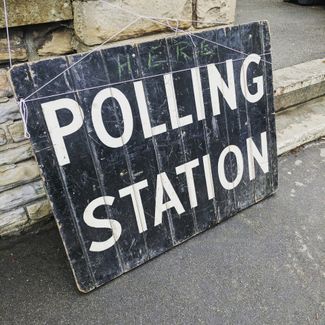
What do the local election results tell us about the mood of the nation?
Among other things, Hartlepool has turned blue suggesting seismic shifts are happening in British politics
13 May 2021
It was almost welcome. Politics was back. Prime Minister Johnson’s gun boat diplomacy spiralling to new levels on election day, while Sir Keir Starmer fumbled his way through yet another farrago. The Union might be creaking in Scotland, and the people of Wales showed themselves to be much more left wing than their counterparts in England, but there was something refreshing about seeing Hartlepool people out and about, spitting vitriol about politicians of all kinds. The reassuring aspect for the ad industry was that they were out spending too, planning a future in which holidays and propping up the bar could form welcome new realities for us all. Just don’t go to Laurence Fox’s new pub (“only British food”) if you want to work in this town again. But what do the results, and the energy of people emerging from their cocoons to vote in a time of great crisis, tell us about the mood of the nation, the economy and where we might go next?
Gina Hood, business director, Pablo London
"The local election results have shown that we shouldn’t think of the nation’s 'mood' as something as transient as Twitter and a reactionary news cycle would lead us to believe.
The UK’s longer-term state of mind is still driving voting patterns, with Brexit continuing to override traditional party allegiances. It’s also demonstrated that in a time of crisis like COVID-19, people are trusting of those who are in charge and perceived to be focusing on the issues directly affecting them. Using the results as a proxy for how people feel the Government’s performed - they seem to indicate that the nation is broadly optimistic about the direction in which 2021 is heading, with a positive perception of the vaccine roll-out and the prospect of a summer spent at the pub."
Charles Vallance, founding partner and chairman, VCCP
"The elections show us what elections nearly always show; that voters respond best to optimistic, feel good messages.
People don’t want their politicians to be glib, but they don’t want them to be unduly negative either. They want life talked up, not down. They prefer inspiration to denigration.
Drakeford, Sturgeon and Johnson all campaigned on resolutely upbeat tickets; Moving Wales Forward, Stronger for Scotland, Levelling Up, Build Back Better etc. Burnham, Norris, Anderson, Street, Houchen and Mortimer all had a similar spring in their step.
The principle of optimism would apply to any election at any time but, as we emerge blinking into the post-pandemic light, it has proved all the more compelling to an electorate in search of an upside."
Jon Goulding, chief executive, Atomic London
"It wasn’t a great surprise that the Tories won the local elections by such a large margin. Maybe Hartlepool was a shock but the rest was kind of predictable. Despite the calamitous way they managed COVID on the way in, and the terrible and arguably avoidable loss of life on such a large scale, on an individual voter level, over 11 million people have the Government to thank for protecting their incomes and the vaccine rollout programme has been a global success story. It’s clear that people seem to now see real hope for the future and they voted accordingly.
The public clearly wants stability post Brexit and post pandemic and the Tories are the fastest route to that. With the UK happiness index on a new high in April, a backlog of savings and pent-up demand, the prospects for the next 12 months feel super positive. And for brands and agencies, that’s great news. Dare I say the only thing that should temper our over-positivity might be to just make sure we don’t over-extend ourselves thinking the honeymoon will last forever."
Ruairi Curran, executive strategy director, Gravity Road
"Data seems to suggest the nation’s mood is similar to that of attendees on a Zoom meeting that has massively over-run - they stopped caring long ago and are desperate to get off the call.
Whilst the top Google search on the day of voting was 'election results' (over 500,000 searches), the very next day the top search was 'Green List Countries' (over 1 million searches) - twice the amount of interest shown in the election results was shown in learning what countries we can to escape to.
The most recent British Social Attitudes Survey found that only 15 per cent of respondents trust the government either 'most of the time' or 'just about always', (which the pollsters - led by Sir John Curtice - described as the lowest level recorded in more than 40 years), then factoring in Brexit fatigue followed by a year of furloughs, lockdowns and 150,000 deaths - it’s hard not to be surprised the nation is so desperate to hit that red LEAVE button."
